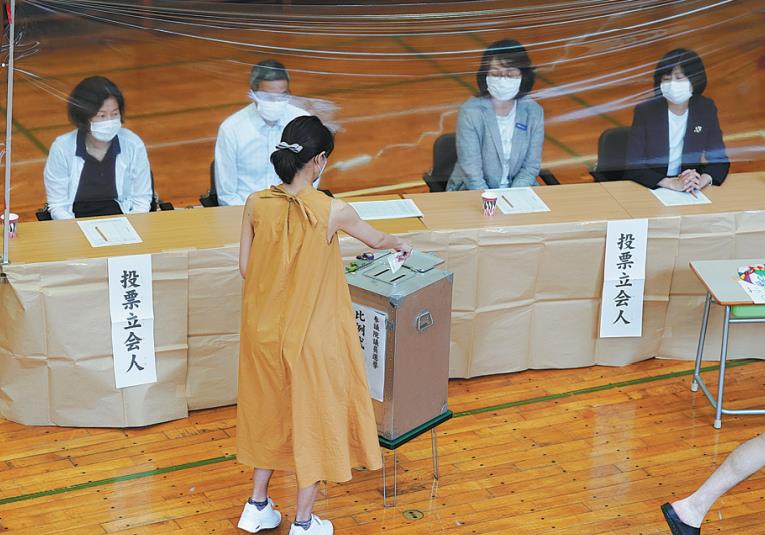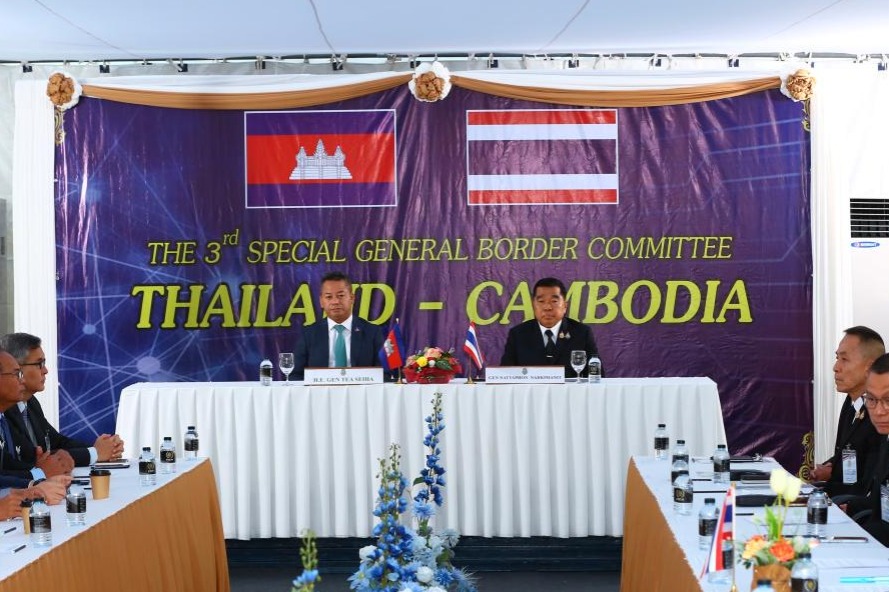Abe killing casts cloud over Japan polls

Ruling coalition set to retain majority in closely watched upper house election

Japan's ruling Liberal Democratic Party, or LDP, was on track to comfortably retain its majority in elections for the national legislature's upper house on Sunday.
The LDP, headed by Prime Minister Fumio Kishida, was set to increase its majority in the chamber, called the House of Councilors, with its junior coalition partner Komeito, Reuters reported.
Japanese went to the polls just two days after former prime minister Shinzo Abe was assassinated while campaigning for a candidate in the western city of Nara. The shock over his killing has focused even more attention on the polling performance of the LDP, which Abe headed during a record-breaking tenure as the nation's prime minister.
The LDP and Komeito were projected to claim between 70 and 83 of the 125 upper house seats up for grabs, according to national broadcaster NHK.
Exit polls indicated the LDP may have been propelled by a wave of sympathy votes in a country where people were still reeling from the shock of Abe's death at the hands of a gunman on Friday, The Associated Press reported.
Campaigning in the lead-up to Sunday had cast the election as a crucial test for Kishida to assess voter confidence in the performance of his government since he took office last year.
Even before Abe's killing, the LDP and Komeito were expected to cement their majority in the upper house, though the final number of seats will be scrutinized for signs of whether the attack bolstered support for them.
Kishida had insisted that the election proceed despite the assassination, saying "we must never allow violence to suppress speech".
For the LDP and Komeito, the retention of their majority was vital for their plans to steer legislation through the parliament over the next three years.
Voters had to weigh up how well the Kishida government did in bolstering the country's COVID-19 response and in its efforts to curb surging prices of energy and household items.
In the upper house, the members serve for six years, and half the seats in the 248-member chamber are contested every three years. For this year's election, 125 seats were contested, including 74 in electoral districts and 50 by proportional representation.
Akiko Ikuina, an LDP candidate and former pop idol running for a seat in the chamber, said in a post on Twitter on Saturday that "those of us who are left behind must help make Abe's vision for our country come true".
Takakage Fujita, director-general of a group dedicated to upholding the 1955 Murayama Statement, said: "Now the pro-constitutional amendment camp has maintained its critical two-thirds majority in the upper chamber needed to push for a first-ever revision of the Constitution. But it is still unclear whether Kishida will put his priority on this despite the fact that he became prime minister with the support of the Abe faction."
The Murayama Statement, released by former Japanese prime minister Tomiichi Murayama, advocates historical recognition and reconciliation with Asian countries by Japan.
Masanari Koike, a former member of Japan's House of Representatives, the more powerful of the two chambers, said: "Many people in Japan were shocked by Abe's fatal shooting, and because of that they may have cast sympathy votes for the LDP.
"Because of the assassination, Japanese media kept broadcasting special reports not only on this incident but also on the era of the former prime minister. And that gives the LDP much more media coverage than the opposition parties."
Koike is among those who believe the media coverage influenced the election result.
Investigation underway
Investigating police are still looking into the motive of the suspect in custody, 41-year-old Tetsuya Yamagami, who served on a destroyer in the Japan Maritime Self-Defense Force from 2002 to 2005. Early statements from the police suggest that the assassination was an act of a lone gunman rather than one driven by political or ideological reasons.
Yamagami told police that he held a grudge against a "particular group" with which he believed Abe had a close relationship. Media reports said the group is a religious organization to which Yamagami's mother had donated large amounts of money.
Yamagami was unemployed, police said.
Koike, commenting on the suspect's background, said: "Considering the age and career of Yamagami, he could be desperate socially and has not been recognized for a long time. He is likely to belong to Japan's 'lost generation', living through an ice age for employment."
Koike said many such people find it hard to gain regular work and are anxious about their future.
At a news conference on Saturday afternoon, Tomoaki Onizuka, head of the Nara prefectural police, acknowledged flaws in the protection of Abe and said that they were looking into how Yamagami possessed an apparent homemade gun, as well as other improvised weapons found in his apartment.
The LDP said Abe's funeral is expected to take place on Tuesday and a joint memorial service by the party and government will be held later.
Agencies and Xinhua contributed to this story.

































